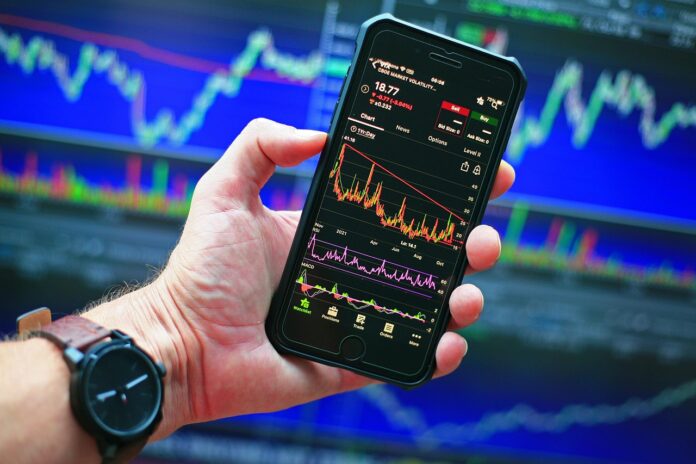Understanding Dow Jones Stock Market Futures: A Comprehensive Guide
In the dynamic world of financial markets, Dow Jones Stock Market Futures stand out as a critical tool for investors and traders. These futures contracts, tied to the Dow Jones Industrial Average (DJIA), offer a glimpse into market sentiment and provide opportunities for hedging and speculation. This article explores the mechanics, significance, and strategies surrounding Dow Jones futures, along with addressing common questions.
What Are Dow Jones Stock Market Futures?
Dow Jones futures are financial derivatives that allow investors to speculate on the future value of the DJIA, an index tracking 30 prominent U.S. companies. These contracts, traded on exchanges like the Chicago Mercantile Exchange (CME), obligate parties to buy or sell the index at a predetermined price and date. Unlike physical assets, settlements are cash-based, reflecting the difference between the contract price and the DJIA’s actual value at expiration.
How Do Dow Jones Futures Work?
- Contract Specifications: Each futures contract represents a multiplier of the DJIA. For instance, if the multiplier is 10andtheDJIAisat35,000,thecontract’svalueis10andtheDJIAisat35,000,thecontract’svalueis350,000.
- Leverage: Traders post a margin (a fraction of the contract’s value) to open positions, amplifying both potential gains and losses.
- Expiration Dates: Contracts expire quarterly (March, June, September, December), with daily settlement marking gains/losses to margin accounts.
- 24-Hour Trading: Futures trade nearly round-the-clock, enabling reactions to global events outside standard market hours.
Why Are Dow Jones Futures Important?
- Market Sentiment Indicator: Futures prices often predict the DJIA’s opening direction, reflecting reactions to overnight news.
- Risk Management: Institutions hedge portfolios against potential declines by shorting futures.
- Speculative Opportunities: Traders capitalize on short-term price movements without owning underlying stocks.
- Global Accessibility: Investors worldwide engage with U.S. market trends through futures.
Key Influences on Dow Jones Futures
- Corporate Earnings: Strong earnings from DJIA companies can boost futures, while weak reports may trigger declines.
- Economic Data: Indicators like GDP, unemployment, and inflation sway expectations about economic health.
- Geopolitical Events: Trade policies, elections, or conflicts introduce volatility.
- Monetary Policy: Interest rate changes by the Federal Reserve impact investor sentiment.
- Global Markets: Movements in international indices (e.g., FTSE 100, Nikkei 225) often ripple into U.S. futures.
Trading Strategies for Dow Jones Futures
- Day Trading: Exploiting intraday volatility through technical analysis.
- Hedging: Offsetting equity portfolio risks by taking opposite futures positions.
- Arbitrage: Capitalizing on price discrepancies between futures and the actual DJIA.
Risks to Consider
- Leverage Risk: Small market moves can lead to significant losses.
- Volatility: Rapid price swings may trigger margin calls.
- Complexity: Requires understanding of derivatives and market dynamics.
Frequently Asked Questions (FAQ)
Q1: How do Dow Jones futures differ from the DJIA?
A: Futures are derivatives based on the DJIA’s expected future value, trading almost 24/7, while the DJIA itself updates during market hours (9:30 AM–4:00 PM ET).
Q2: What determines futures prices?
A: Prices reflect market expectations, influenced by economic data, corporate news, and global events. They often diverge slightly from the current DJIA due to interest rates and dividends.
Q3: Can individuals trade Dow Jones futures?
A: Yes, through brokerage accounts with futures trading access. However, understanding margin requirements and risks is crucial.
Q4: How do global events impact futures?
A: Events like geopolitical tensions or foreign market drops can affect U.S. futures overnight, signaling potential DJIA movements.
Q5: Are futures suitable for long-term investing?
A: Typically, no. Their leverage and expiration cycles make them better suited for short-term trading or hedging.
Conclusion
Dow Jones Stock Market Futures serve as a vital barometer for investor sentiment and a versatile financial instrument. Whether used for hedging or speculation, they demand a strategic approach and risk awareness. By staying informed on influencing factors and market trends, traders can navigate futures markets more effectively. Always consult financial advisors to align strategies with individual goals and risk tolerance.
Read More: Business Credit Cards for Startups: Super Strategic Tool for Growth
News Site: News9.live
